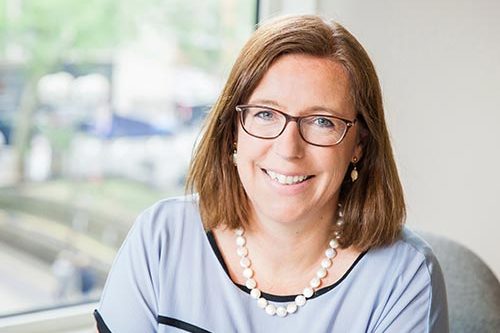
How to thrive in times of change
July 20, 2017
Expert View: Why fundraising teams should be values-led
September 20, 2017A successful mentoring relationship is an important way to help people accelerate further and faster within their careers and to achieve their fundraising goals. Susan Morgan of the Tony Elischer Foundation shares her tips for getting the most out of a mentoring relationship.
World renowned development guru, Charles Handy, talks about how we each need to find proper selfishness to help us to invest in ourselves and our futures. So many people working in charities put the cause first and themselves a long way behind. If we are to be the best we can be – to fulfil our potential and perform really well – then we need to be properly selfish. One way to do that is to invest time and money in mentoring.
Many successful people have found their success through the power of mentoring. Facebook CEO Mark Zuckerberg was mentored by Steve Jobs. And of course Tony Elischer, whose legacy we strive to continue and build upon, was a mentor to many fundraisers who have gone on to achieve incredible things for the charities work for. Several of these have also now become mentors at Tony Elischer Foundation, providing inspiration and guidance to a new generation of fundraisers.
So, here are some top tips for getting the most out of mentoring:
Identify the right person
Typically a mentor is at least two levels above you. Or look for someone who has skills you admire or is doing the type of role you aspire to do.
Chemistry is important
You need to be open and up front with your mentor. If you don’t have a spark between you this relationship probably will not work.
Set clear goals for your mentoring relationship and for each session
It’s too easy for a session to be a talking shop if you are not clear what you want to get out of it. Never go in without an idea of what you want to take out.
Learning goals should be behavioural
You need to be able to understand when you are doing something better. Make it about something you want to do differently and say what others will see, hear or feel. ‘Becoming a better manager’ is not a good learning goal. ‘Asking open questions and listening actively’ is, because it is obvious if you are doing it or not.
Contracting is essential
Agree how you’re going to meet, whether it’s face to face or via another channel, frequency of meetings and numbers of meetings in total. It’s best to agree on a set number and then evaluate half way through. Open ended commitments too often peter out. Also you may not want the same mentor for ever. Once you are skilled in a certain area – or reach the same level as your mentor – you may not learn any further from them. Having a contract saves hurt feelings and gives you the ability to bring everything to a positive end.
Confidentiality is important so that you have open and honest relationships
Check in what circumstances a mentor may have to break confidentiality. Although rare it could happen if your mentor were concerned about your health. If your charity is paying for a mentor be clear if they are expecting any feedback directly from that mentor. If they do will this be acceptable to you or will it compromise your relationship?
Get that mentor
Never be shy about asking someone busy or successful to mentor you. If someone has the time to help, they almost always say yes. Or if they cannot they may well point you in the direction of someone else who can. And never be shy about negotiating with your organisation to pay for mentoring. So often a formal mentoring arrangement is the one that will be really valuable. You need your mentor to turn up, prepared and ready for the session. Your future development shouldn’t be based on someone doing you a favour.
Mentoring can help high performing and talented people to accelerate even further and even faster and investing in mentoring will bring on your talent fast. If you are looking to develop then take hold of your development and secure a mentor.
About Susan Morgan
Susan Morgan is Director of Tony Elischer Foundation, which supports and nurtures individuals with talent and passion for fundraising; helping them reach their full potential. The Foundation provides mentoring programmes, pairing individuals with relevant sector experts for at least a twelve month period. Participants also become part of a wider group and benefit from additional development opportunities such as forums, workshops and webinars. Find out more at: www.tonyelischerfoundation.org



